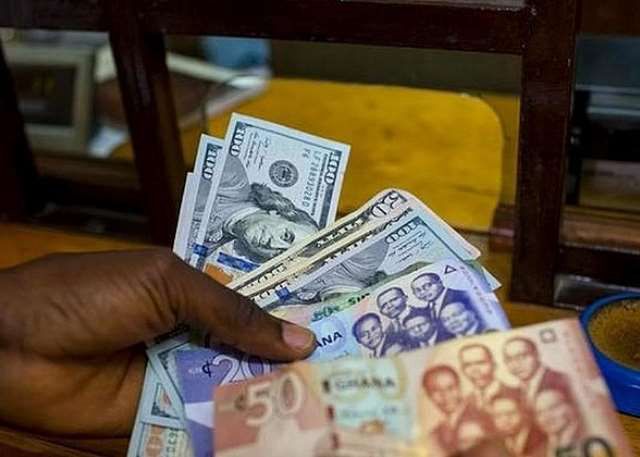“The dollar has dropped again oo! The dollar has dropped again!! Traders, also reduce your prices!” exclaims a young man in a viral video that has been making the rounds across Ghanaian social media. His passionate plea echoes a national sentiment as the Ghanaian cedi makes an unexpected and dramatic comeback against the US dollar. From approximately GH₵15.40 per dollar in early January 2025 to GH₵11.05 by mid-May, the 28% appreciation has become a focal point of political discourse, economic speculation, and public fascination.
With a new government in office barely five months, President John Mahama and his administration have been quick to claim victory, citing effective leadership and smart economic policies. The Finance Minister, Dr. Cassiel Ato Forson, has gone a step further, pointing to the Ghana Gold Board (GoldBoD) as a “game changer” that has improved transparency in gold exports and enhanced foreign exchange inflows. In his words: “GoldBoD is not just another institution—it is a vehicle for achieving currency stability… and supporting our broader recovery efforts.” (mofep.gov.gh)
Yet, critics from the opposition argue this is mere political theatre. They contend that the appreciation has less to do with domestic policy and more with international factors—particularly the recent depreciation of the US dollar triggered by protectionist trade tariffs and policies introduced by President Donald Trump.
The Numbers Behind the Narrative
According to the Bank of Ghana, the cedi has appreciated steadily from GHS15.30 in January to GH₵11.05 by mid-May. In April alone, the cedi gained 8.9%, moving from GH₵15.53 to GH₵14.15. By May 23rd, the interbank mid-rate had reached GHS10.95. This sharp and sustained shift is unprecedented in recent years.
Alongside this, the central bank raised its interest rate to 28% in March 2025 in a move to curb inflation and stabilize the currency. Inflation, though still high, is gradually trending downward with a target of 11.9% by year-end. Government spending has also been reportedly subdued, contributing to the overall sense of fiscal discipline.
A Data Science Perspective
As a data scientist, I am inclined to look past narratives and focus on the data. While the correlation between new policy introductions and exchange rate changes is compelling, correlation does not equal causation. For instance, a time-series analysis or a Granger causality test could examine whether the appreciation was indeed driven by domestic policies or if it simply coincided with external factors such as declining dollar strength.
Further, it would be useful to model the cedi’s movement under similar global conditions from previous years—such as during trade tariff escalations—to assess patterns. Data science allows us to move beyond opinions and bring empirical clarity to economic debates.
What Ghanaians Should Watch For
As Ghana watches the cedi, three key indicators will signal whether the surge is sustainable: consistency in forex inflows—particularly gold export revenues; inflation trends relative to the Bank of Ghana’s target; and whether the US dollar continues to show global weakness. Data-savvy citizens should keep an eye on these figures—not just political promises.
Looking Ahead
The question remains: can this trajectory be sustained? If the current monetary and fiscal policies hold, and global economic pressures don’t reverse, the cedi may continue to stabilize. However, any policy misstep, political instability, or global commodity price shock could reverse these gains. For now, the cedi’s surge is both a political trophy and a puzzle—one that demands careful, data-informed scrutiny. And in that scrutiny lies the power of data science: to separate spin from substance and to help shape economic narratives grounded in truth.
Stephen Sarpong Lartey is a data scientist and currently a PhD candidate studying for Information Technology with concentration in data science. He also has a background in Development Finance and Project Management. He writes on the intersection of data and agriculture, policy, and African development. Email: [email protected]


